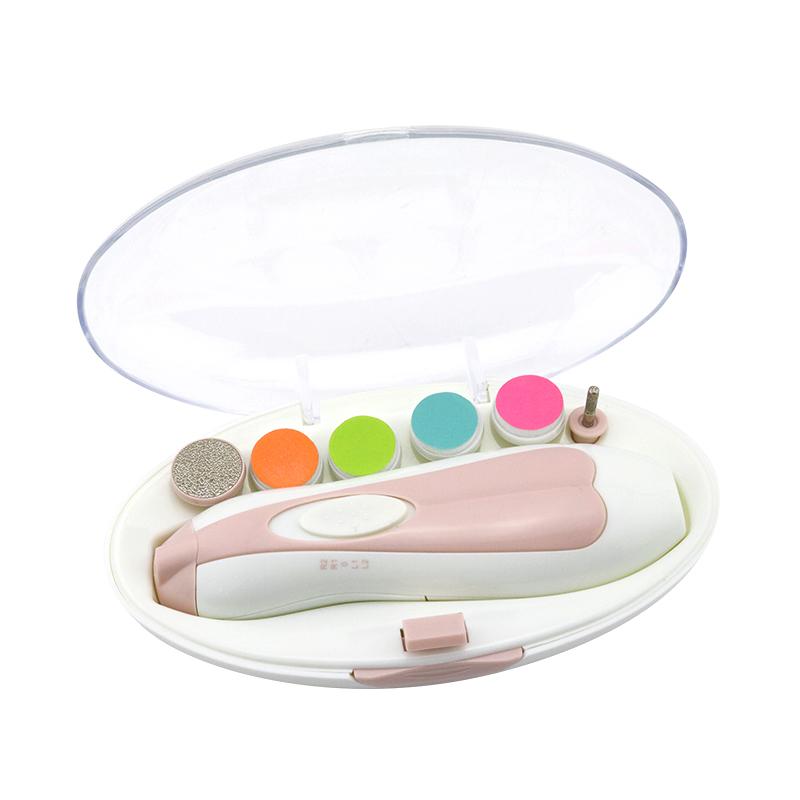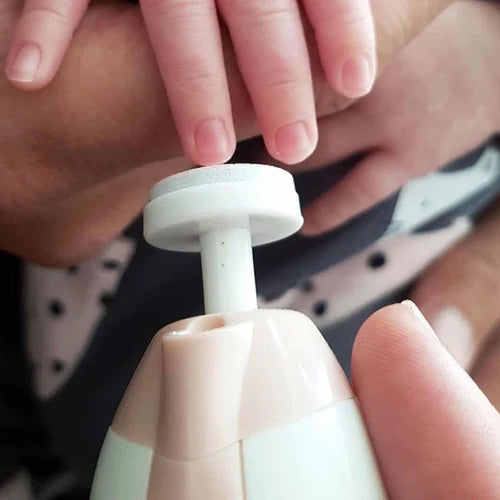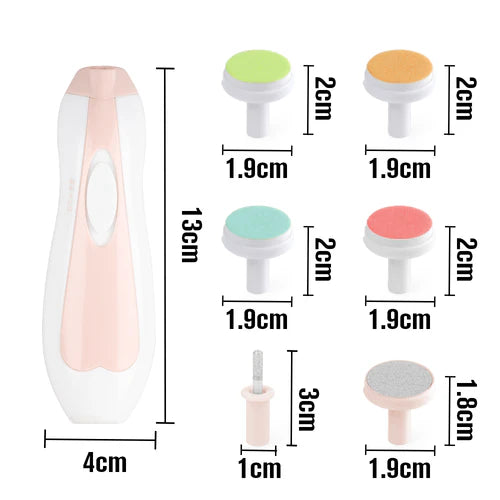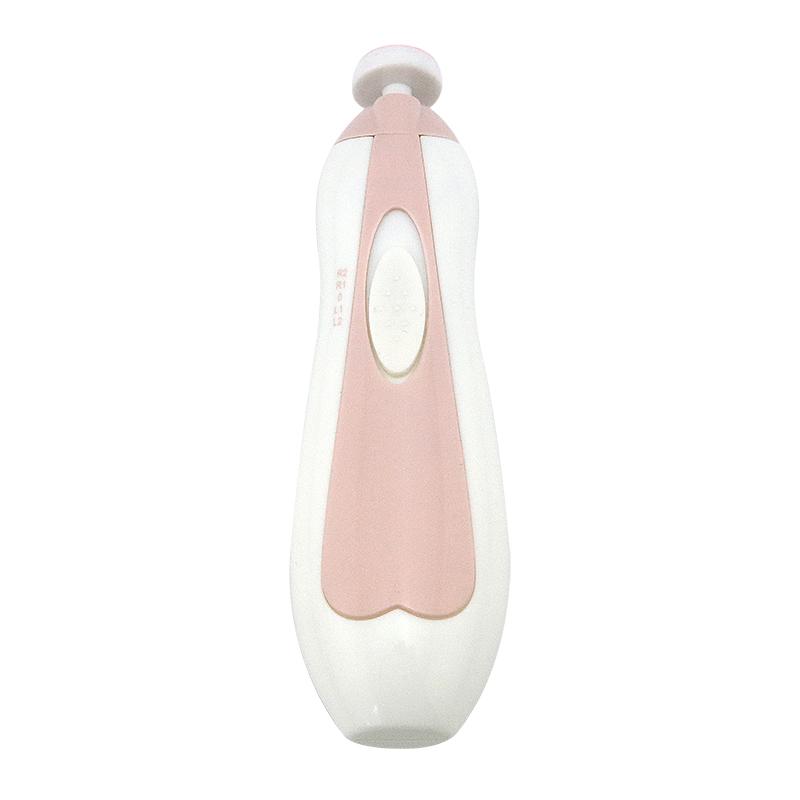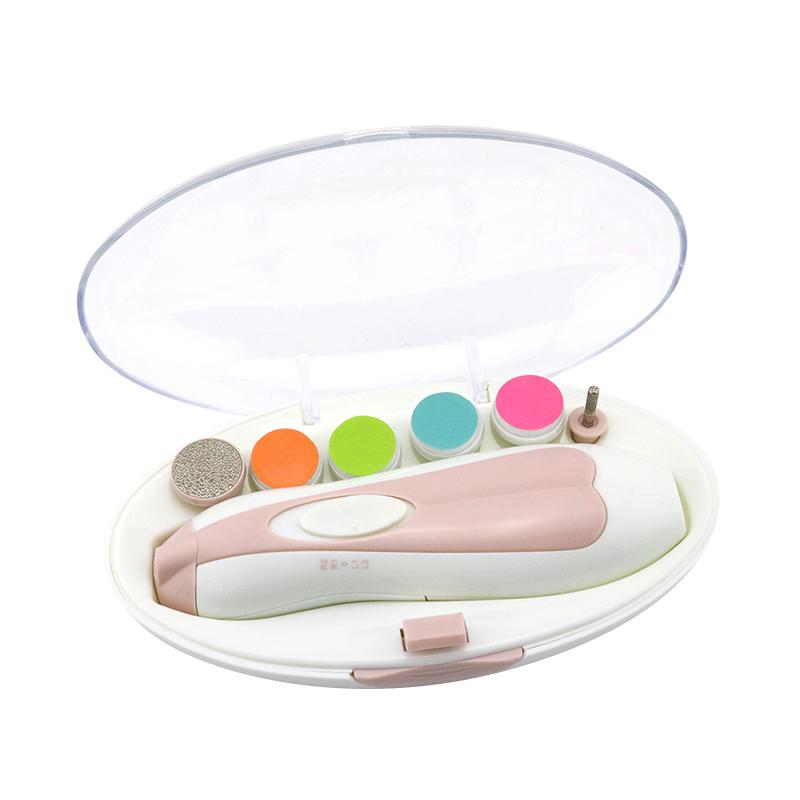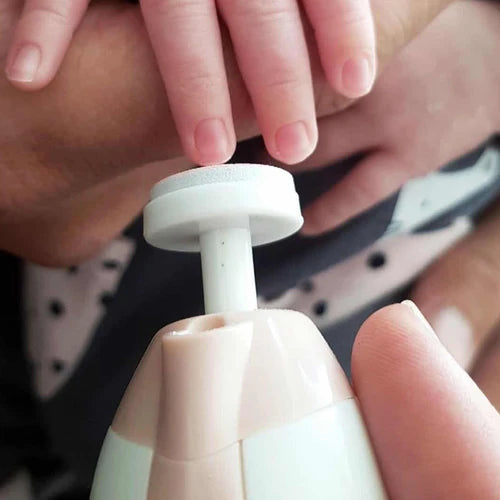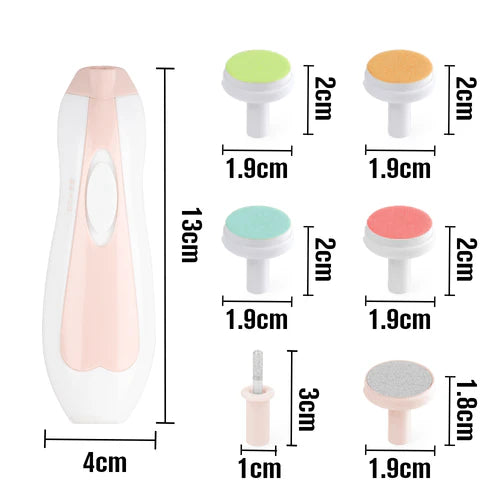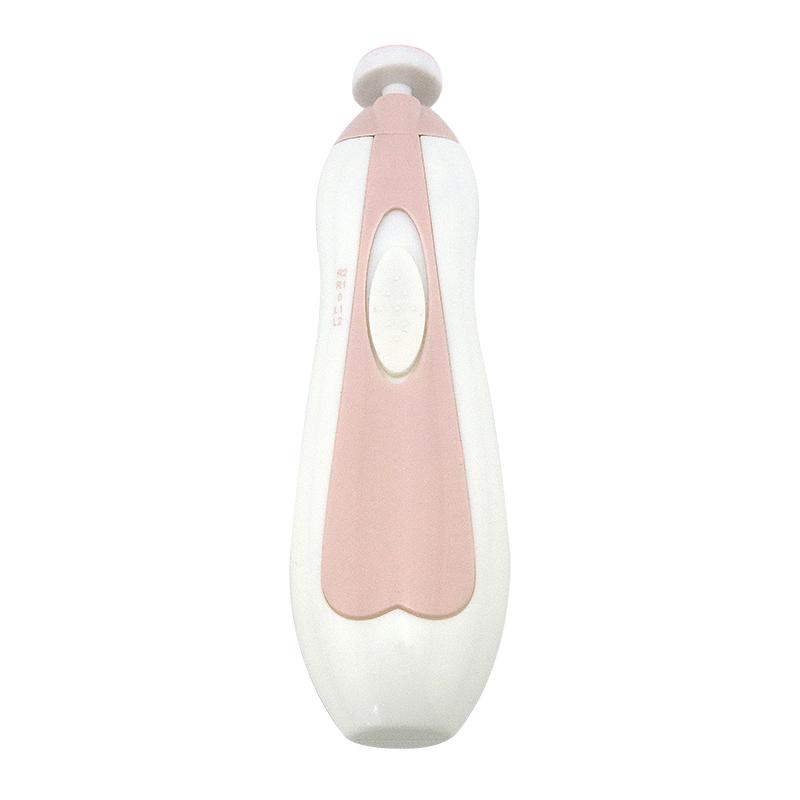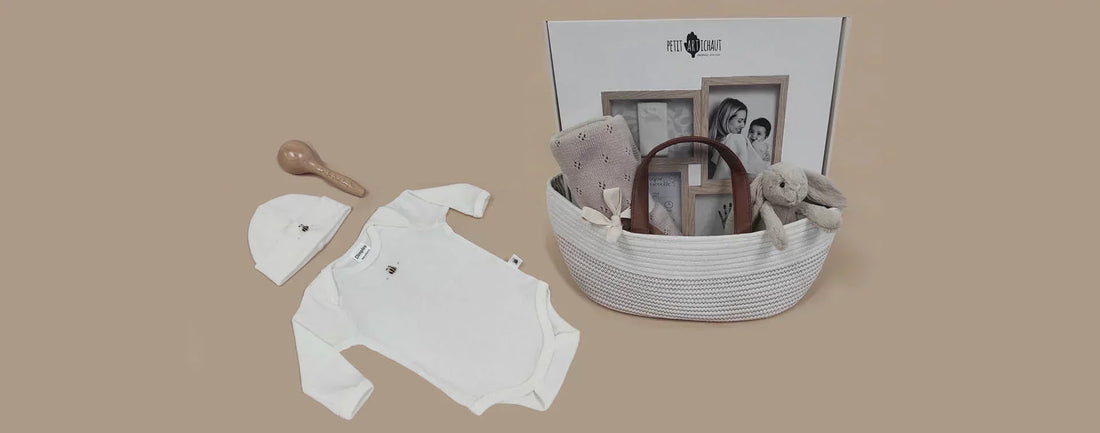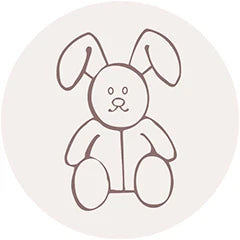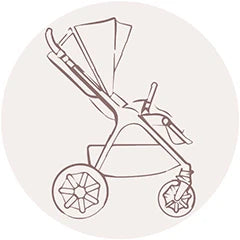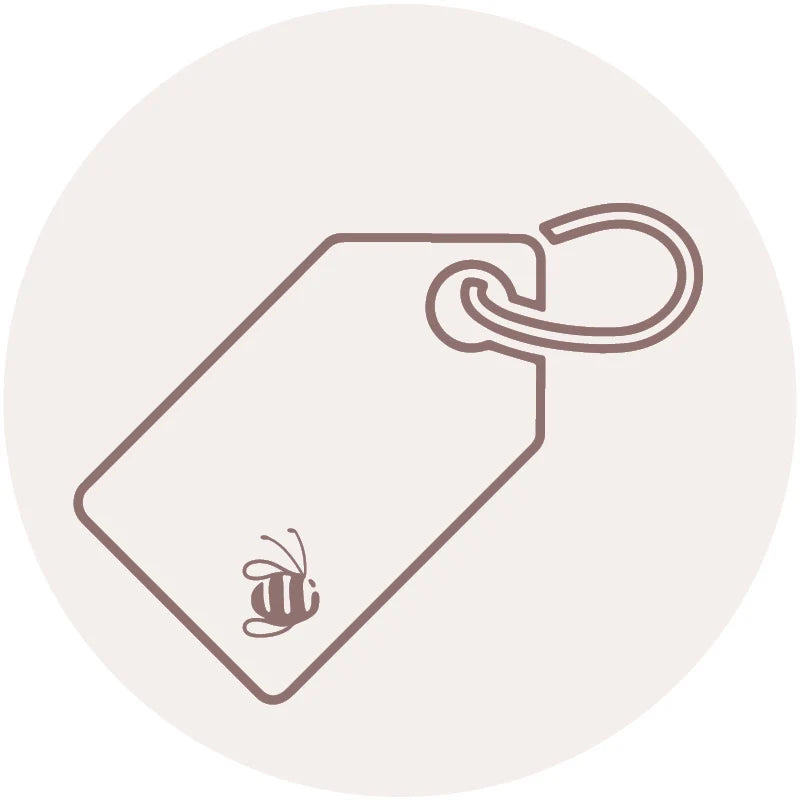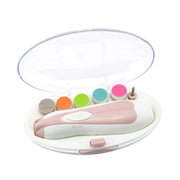Haakaa Electric Nail Care Set
Haakaa Electric Nail Care Set
SKU:SGE004
In stock
Couldn't load pickup availability
Overview
Overview
Simply attach the trimmer pad suitable for your child's age and gradually file down their nails! The trimmer pads make your baby's nails smooth and don't leave sharp edges that may scratch their delicate skin. We've also included a metal pad and cone so parents can file down their nails too!
What's Included
What's Included
Technical Specification
Technical Specification
User Guide
User Guide
Delivery and Returns
Delivery and Returns
- Delivery: Free within NZ on orders over $100 (excluding bulky items) or $8 standard shipping
- Returns: Accepted within 14 days of receipt with proof of purchase
- Some items are excluded from returns including sale items, hardware, car seats, prams, monitors and personal items - please click here for the full list.
Share this product
Recently Viewed Products
Related Blogs
Pros and cons of getting a nanny
A nanny or not? That is the question It could be the best decision you ever make So, you’re ready to go back to work – now comes the sticky question of who looks after the kids. You’ve got plenty of options, all with different pros and cons, including daycare, home-based care and family members helping out. Not often explored in NZ is the option of getting a nanny. While some families think they’re the best thing since sliced bread, it’s not the right solution for everyone. Advantages of hiring a nanny No more frantic mornings It’s hard enough getting yourself out the door, let alone an unwilling toddler, or a baby who always seems to need changing at the wrong time. With your nanny around, frantic mornings are gone. It’ll be as simple as getting yourself ready and kissing your baby’s goodbye. One-on-one care It’s comforting to know that yours is the only kid (or kids!) your nanny has to worry about. There are no other crying babies to attend to, so they have the nanny’s attention all the time. That means your children’s emotional, physical and developmental needs are there first priority. Your children will also be at home in their own space – a far more relaxing environment than a Daycare Centre. Flexibility A nanny’s hours will usually be more flexible than daycare. Rather than rigid schedules, you’ll work to understand how flexible the nanny’s hours are, and how you can handle abrupt changes of plans. No more last-minute calls to daycare or paying through the nose for late pick-ups. Less illness Daycare is a breeding ground for coughs, colds and other childhood illnesses. By keeping your child away from other children, you’re avoiding a host of health issues, which is better for everyone in the family. Help in the home Imagine coming back to a tidy home, washing done and the kids fed. Nannies don’t just look after the kids – they can also help around the house too. The level of extra duties will depend on how many kids they are looking after, so it’s best to detail these from the start. No-compromise approach to care If you parent a certain way or believe in certain approaches, it can be difficult to let others look after your child when they don’t share your values or views. When you hire a nanny, you can choose someone who already fits your family, and then ask them to closely align with your parenting style. Daycare, homebased care or family members won’t give you nearly the same level of oversight and control. Disadvantages of a nanny You’re reliant on just one person If the nanny quits unexpectedly – or is unwell – you may be stranded with no other childcare options. A daycare is always open! Less social interaction Socialization is important for your child’s future. Daycare means your child has daily contact with peers but staying at home with the nanny means your child may miss out. To combat this, you could ask your nanny to schedule playdates, outings, and music or swimming classes. A bit pricier A nanny will need to be paid at least the minimum wage, which is $23.15 an hour – although you should expect to pay up to $30 an hour for a good one. That means a ten-hour day will cost at least $231.50, or $1,157.50 for a five-day week, which is a lot more expensive than your average daycare. If you have two or more kids, a nanny becomes a more economical option – you’ll pay the same hourly rate, regardless of the number of children (within reason!), but you pay per child for daycare. If the nanny can help out by doing some housework each day, the equation becomes even more attractive. More paperwork If you employ someone directly, you may have to pay PAYE and other employer-related taxes and benefits. You also need to be familiar with the Holidays Act and Employment Relations Act. Working through a nanny agency can solve some of these problems – they’ll handle the paperwork but may add a fee. Lack of privacy This person will be in your home, all day, with no other adult there. Some people may struggle with this and feel like they are losing their privacy. Questionable qualifications How do you know you can trust this person with your child? In NZ, there’s a Certificate in Nanny Education, a globally-recognised qualification. This qualification ensures they have the theoretical and practical knowledge to look after your children. But nannying doesn’t require qualifications – they could be studying towards an early childhood career or have no qualifications at all. You’ll need to do your homework to check up on potential nannies – even if they seem to tick all the boxes. Ready to find a nanny? If you’ve decided a nanny is the best option for your family, there are plenty of places you can find one. There are umbrella organizations that act as agencies to connect nannies and families. You could also advertise online or ask around your community for recommendations. Remember to check references thoroughly and perhaps conduct a paid trial to see if the nanny and your kids get along. Get it right, though, and a nanny could be an amazing addition to your family.
Learn moreNewborns & Sleep: What to Expect and Survival Tips
Bringing a new baby home is one of life’s most beautiful - and exhausting - adventures. In this blog, Family Sleep & Wellness Coach, Lauren Moran from Little Dreamers, shares her expert advice on newborn sleep in the fourth trimester.
Learn moreYour Wishlist, Made Easy
Creating a gift registry takes the guesswork out of gifting for you and your loved ones. While the journey of pregnancy can come with plenty of challenges, ticking off your shopping list doesn't need to be one of them.
Learn moreNavigating Emotions During Pregnancy and Postpartum: You’re Not Alone
Pregnancy and the postpartum period are times of incredible change, physically, emotionally, and mentally. You’ve entered a brand-new chapter in your life, one filled with love, learning, and sometimes, a little chaos. Your body is adjusting, your hormones are shifting, your routine is changing, and now there’s a tiny person who depends entirely on you. With such big changes, it’s completely natural to feel overwhelmed at times. These experiences can take a toll on your mental health, no matter how “small” the changes may seem. But one thing is certain, you’re not the first, and you’re not alone. Mood Swings Mood swings are incredibly common during pregnancy, postpartum, and even during menstruation. They happen when emotions change quickly or feel more intense than usual. While hormones play a big part in this, mood swings can also stem from things like lack of sleep, changes in routine, or neglecting your own needs.It’s important to care for yourself through these transitions so they feel a little smoother. Ways to Support Yourself During Mood Swings Take a walk to clear your mind. Fresh air and gentle movement can work wonders. If your baby has arrived, bring them along so you can both enjoy the change of scenery. Seek support from loved ones. Whether you need someone to talk to, help with the baby, or just company over a cup of tea, reaching out makes a huge difference. Connection is one of the strongest protectors of mental health. Create a little “you” space. It could be a cozy corner, a seat by a window, or a sunny spot outside. A quiet place to pause, breathe, and gather your thoughts can bring you back to centre. Keep up with small acts of self-care. Taking a shower can feel like a luxury with a newborn, but it truly helps. Products like the Nuna Leaf Grow can be a lifesaver, let your baby gently sway while you take a few minutes to refresh. Do your skincare routine, put on a face mask, or spend 10 minutes doing a hobby you love. Even short moments of care help your mind reset. Remember, no matter what you are feeling, your emotions are valid. If your moods are starting to affect your daily life, please reach out to your doctor, midwife, or a mental health professional. Your wellbeing matters deeply, both for you and for your new little family. Understanding Anxiety Anxiety has been part of human life since our earliest ancestors. In prehistoric times, it was a survival mechanism helping people stay alert to dangers like predators or the risk of being left out of their group. This “fight, flight, or freeze” response kept them safe.Today, we don’t face the same physical threats, but our brains still use the same alarm system. Instead of warning us about predators, anxiety now shows up in moments like worrying about parenting, work, or social situations, times when it may feel overwhelming or out of place. Feeling anxious during pregnancy is completely normal. The “what ifs” and the doubts about being a good parent can feel heavy and persistent. Many people experience this, but it’s still something that’s often under-recognised. There’s an important difference between feeling anxious and living with anxiety. Feeling anxious is a temporary and natural response; anxiety, on the other hand, is ongoing and can impact your daily life and wellbeing. Common Symptoms of Anxiety Excessive worry about your baby’s health, birth, or your ability to parent Physical symptoms like sweating, shortness of breath, or difficulty sleeping Intrusive or distressing thoughts about your baby Irritability, restlessness, or difficulty focusing These symptoms can affect sleep, appetite, and how you function day to day, sometimes even making it harder to bond with your baby. If your anxiety feels overwhelming, please reach out for support. You do not need to face this alone. Support in Aotearoa New Zealand Anxiety NZ: Call 0800 ANXIETY (0800 269 4389) or visit anxiety.org.nz PADA - Perinatal Anxiety & Depression Aotearoa: pada.nz for help specific to pregnancy, birth, and early parenting Need to Talk? Text or call 1737 anytime for free, confidential counselling; 1737.org.nz For Māori whānau, resources like Te Whare Tapa Whā and Whānau Ora offer holistic, culturally grounded support; visit manamokopuna.org.nz. For Pasifika families, PADA offers programmes such as Tama'ita'i Toa, and you can also explore stories like Sela’s Project: A Mother’s Cry at mentalhealth.org.nz. Reaching out is a sign of strength, not weakness. Help is available, and you deserve support. Postpartum Depression (PPD) After giving birth, some people experience postpartum depression (PPD) or anxiety, sometimes weeks, months, or even years after their baby arrives. It’s something that has existed throughout human history, yet it’s still under-researched and often misunderstood.If you’re experiencing symptoms of depression or anxiety, please know this is not your fault. These feelings do not define your worth or your ability to be a good parent. Common Symptoms of PPD Persistent low or flat mood Frequent irritability or loss of interest in usual activities Changes in appetite or sleep Constant fatigue Trouble concentrating or making decisions Some parents may also experience distressing intrusive thoughts about their baby. These can feel terrifying or shameful, but having these thoughts does not mean you want to harm your child. They are a symptom of your mental health, not a reflection of who you are. If you’re struggling with these thoughts or any of the symptoms above, please reach out for help. You are not alone, and there is care available to support both you and your baby. In Aotearoa, you can find support and information through Healthify NZ’s Postnatal Depression. Finding Your Balance Again While pregnancy and postpartum can bring moments of uncertainty and emotional ups and downs, they also bring incredible growth, connection, and love. You are learning new things about yourself every single day, how strong you are, how deeply you can care, and how resilient the human heart can be. Remember, there will be good days and harder ones, but none of them define you as a parent. The difficult moments will pass, and with time, support, and self-compassion, things will start to feel lighter again. Be gentle with yourself. You are doing one of the most important and beautiful things in the world: nurturing life, both your baby’s and your own. Take each day as it comes, celebrate the little victories, and remind yourself often: you’ve got this.
Learn more

